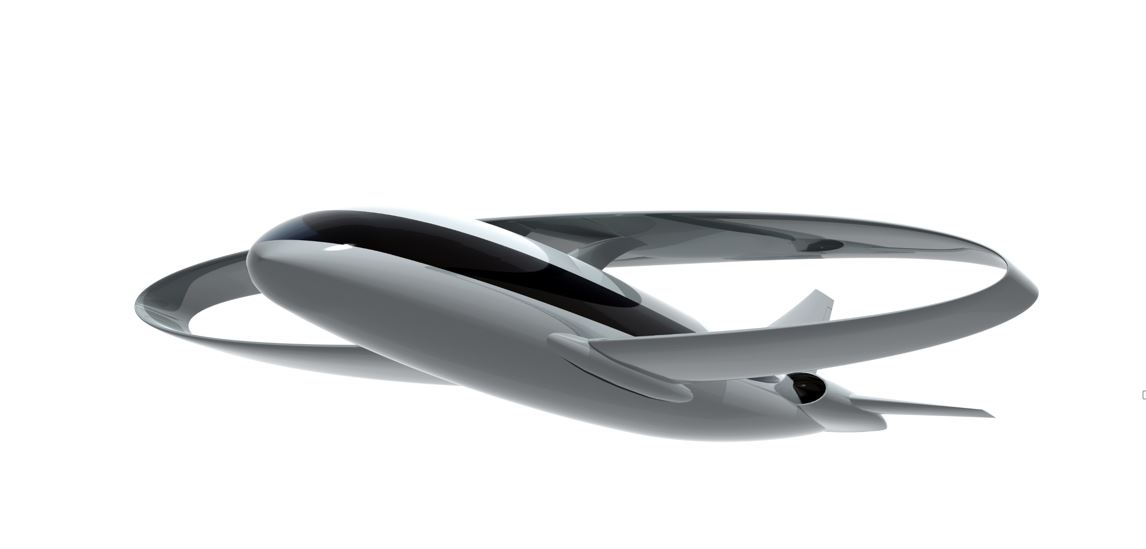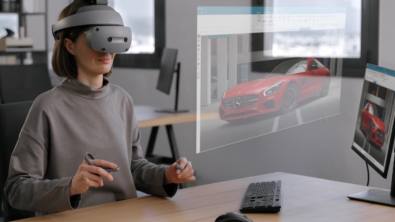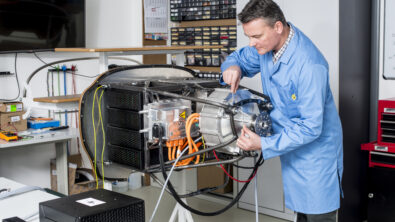Accelerate your product design through agile product development

With innovation and complexity on the rise, it’s no surprise companies are trying to develop their products faster to meet customer demand. Not only is there more innovation, but the competition is more intense.
One area that best exhibits this confluence of factors is the emerging urban air mobility (UAM) market. I’ve talked extensively about electrical vertical take-off and lift (eVTOL) aircraft where there’s literally hundreds of companies competing in the same space. Everyone wants to be first. Defense agencies are no exception to this trend either. The US Air Force is looking to change its acquisition process. They can no longer afford the big programs that take 20 to 30 years to develop. Those days are long gone.
Thus, a new way of thinking is required – not only on how we go about planning but in the way we design and manufacture.
Listen to our latest Talking Aerospace Today podcast on this very topic
Have you heard about our podcast Talking Aerospace Today? Produced by the Siemens Aerospace and Defense Industry team, the podcast goes to the heart of what’s happening inside our industry today.
Our current five-episode series of Talking Aerospace Today is called “Accelerating Productivity through Digital Transformation.” We’re looking at ways aircraft OEMs and suppliers can improve productivity and increase profitability. It’s my hope that you find each episode fascinating and well worth your time.
You can listen to podcast #1: “What is productivity in this age of digital transformation?” and podcast #2: “Orchestrate your technical program with Model Based Systems Engineering” now.
Click here to listen to podcast #3. It’s the topic of this blog – accelerating product design through agile product development.
Welcome to the world of agile product development
Aerospace and Defense companies today are using more rapid prototyping and rapid fielding to develop new products. It’s paramount to move fast with a more agile mindset. Companies are recognizing that smaller and faster programs are better than those big, long programs from years past.
Think about what’s happening in eVTOLs today. Commercial companies are quickly adapting new technologies as industry needs change and evolve. To be successful, small companies have to be fleet of foot. In some respects the market is moving faster than their product development. A&D companies are looking for ways to go faster and get products to their customers sooner.
Think of the possibilities:
- What if you could build and test your product before the full design is completed?
- What if your integration was not just managing multiple interfaces around suppliers, but also managing your technical risks so that you could manage your schedule better?
- What if you could dissolve the silos that exist between teams and outside partners and as a result, you can truly accelerate your innovation?
Program management needs to focus on maturing and delivering content, not just on meeting costs and schedule milestones. A transformation is needed on how your culture thinks about designing and developing new products.
“A&D companies are looking for ways to go faster and get products to their customers sooner.”
But how do you manage something like this?
One of the keys to agile product development is the continuous or iterative process of finding the optimal solution. All of this occurs within the digital environment which is something the Siemens Xcelerator portfolio provides. Xcelerator is a flexible, open ecosystem of software and services that includes a comprehensive digital twin and multiple digital threads for the connectivity of multi-domains from the early design phases through to when you complete your certification.
Agile product development means you’re doing continuous verification and you’re managing and maintaining this configuration control with all of its artifacts in place. It means you have traceability through your digital threads so you’re able to work the right thing all the time. You have a very robust program management system where everything is synced together.
To achieve this you can establish a Model Based Engineering program that syncs your design digital threads with Model Based Systems Engineering (MBSE) and your program management digital threads. And then, you’re doing this continuous verification whether it’s virtual or physical with the Siemens comprehensive digital twin.
Siemens helps customers with agile product development
It’s really about our Xcelerator portfolio which brings all of those solutions together, including different solutions in the cloud, and our rapid application development platform. Xcelerator brings this comprehensive digital twin of your product and your production processes together so have this robust understanding of what you’re building and how you’re going to build it. And then, on top of all this, Siemens brings in elements of generative design for multi-domain optimization. Essentially, you are now able to automate some of your design cycles.
Now you can design in context. When you think about virtual reality, you’re looking at the airplane maybe the same way that the mechanic or the technician would look at it. It’s a completely different design experience and environment. You can bring in tools for design, engineering and manufacturing and tie these solutions together using the comprehensive digital twin and digital thread.
No question this helps accelerate the overall design process.
A final word
Customers who adapt to a more agile product development approach see significant and relevant cost savings. In the process, they become more agile in their execution and in their decision-making skills.
Our customers make better decisions because they have the digital thread that brings traceability and connectivity advantages. They’re reducing their development time. And most important, they are getting upwards of a 90 percent first-pass yield on their design and manufacturing process. So there’s a lot less rework.
How can you ignore that?
Agile product development not only brings benefits to the design world, but to the manufacturing world as well.
If you’d like more information on how this digital thread can benefit your operation, I urge you to download the paper “Take flight with agile product development in aerospace and defense.”
There’s also this just-released white paper from CIMdata that dissects the agile product development approach and discusses the many ways agile development fosters speed and innovation. If you’re more into watching the latest on-demand webinar, Jim Roche (of CIMdata) and I sit down to discuss the latest in agile product development as it relates to the A&D industry. Some really good stuff.
And don’t forget, for additional information on all our industry solutions, please visit our Aerospace & Defense website.
Oh, and remember to listen to the podcast on this very topic!
Dale Tutt is the Vice President of Aerospace and Defense Industry for Siemens Digital Industries Software. He is responsible for defining the overall Aerospace and Defense industry strategy for Siemens Digital Industries Software, driving specific industry requirements into solutions for Aerospace and Defense customers. Dale has over 30 years of experience in engineering design, development and program leadership within the Aerospace industry.


